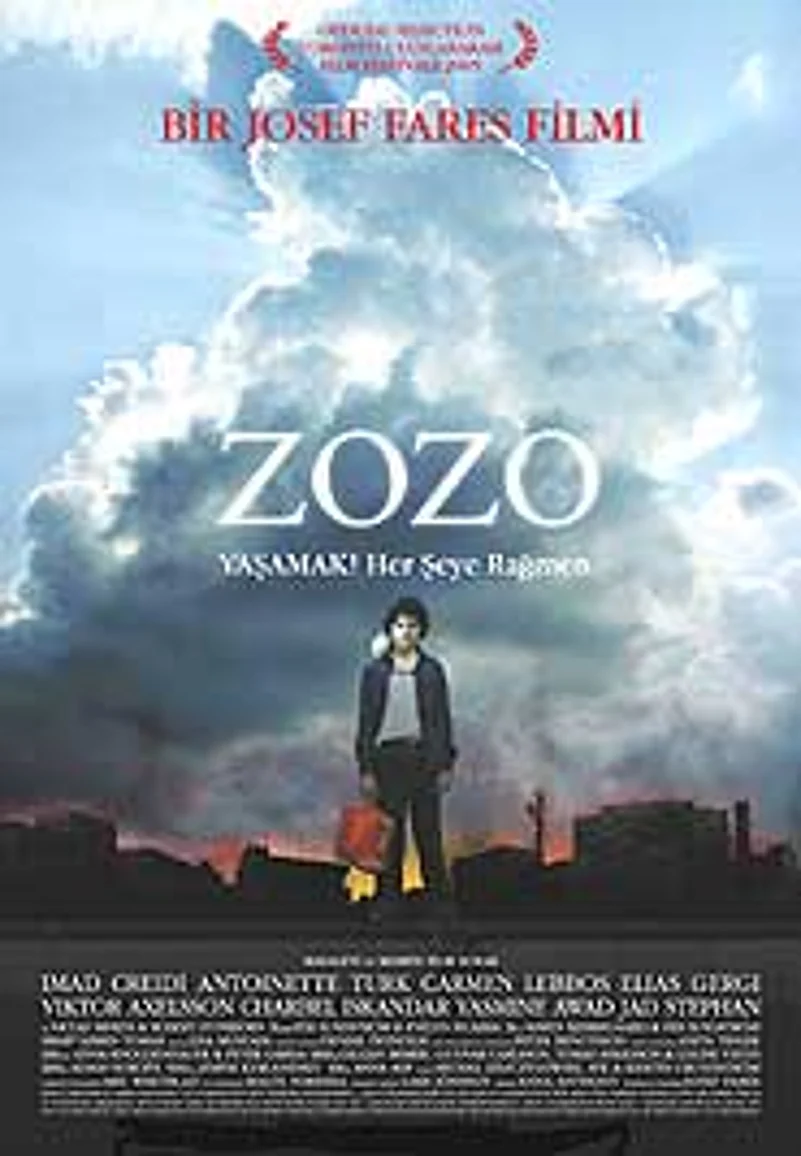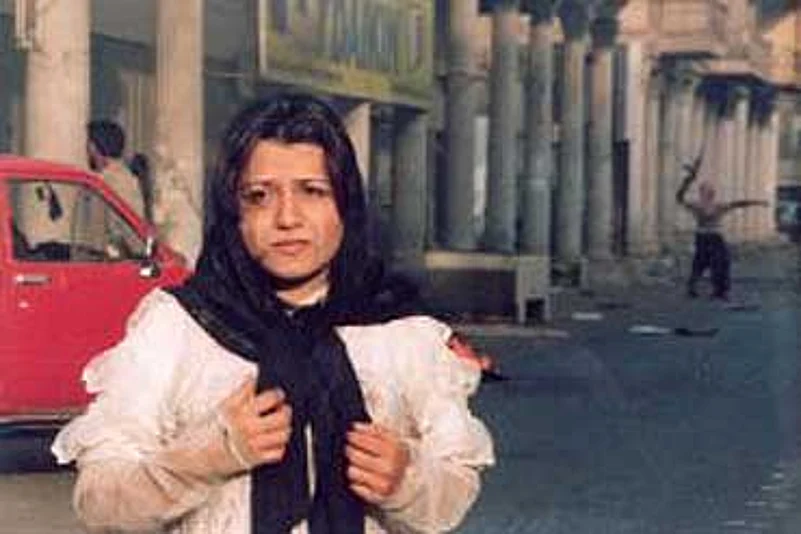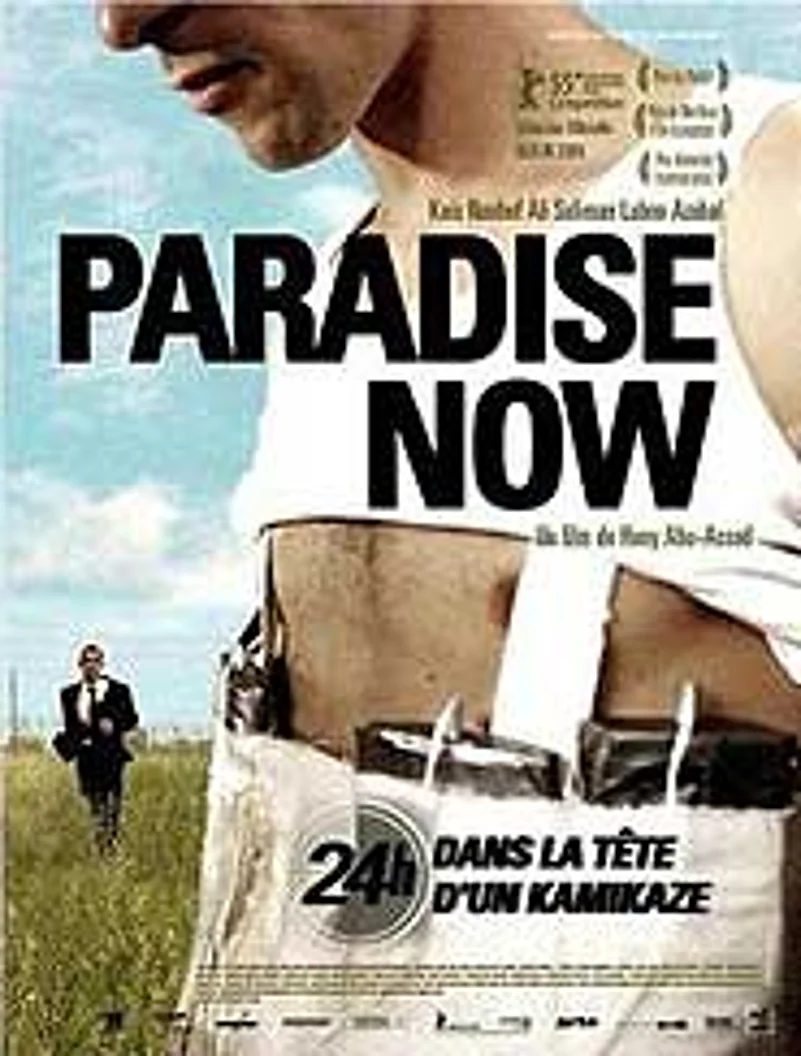7/11 in Mumbai, a bomb threat at India Gate and amidst the tight security of Siri Fort, we are watching film after film about this dreadful object: the bomb. In the Osian's Cinefan film festival this year, one of the very discernible ideas behind the films from across Asia and the Arab nations has been bombings and terrorism, clashes and conflicts; their aftermath on innocent people and,of course, the crooked politics. These films show how violence has become rooted in our fragile lives and how there can be no escaping it. "They are topical but are also attempting to go beyond just the daily headlines," says Latika Padgaonkar, the programmer of the festival.
Advertisement

I begin Cinefan with Zozo a Sweden-UK-Denmark co-production directed by Josef Fares, a Lebanon-born Swedish director, who undertook much the same journey as his film's protagonist. In many a scene in the film, bombs drop from the skies almost like falling stars, beautiful from a distance but ravaging when they hit the earth. Young Zozo tries to lead a normal, happy life with his family amidst the turmoil of the civil war. In the devastated landscape of their home, they all dream of emigrating to Sweden to be with Zozo's grandparents. The film constantly juxtaposes a bombed out Beirut with the beautiful, peaceful, Edenic images of Sweden. It shows how violence can become integral to lives of common people to such an extent that even banalities like the puppy love for the neighbour's daughter can become an experience worth cherishing. It shows loss, sorrow and pain and also the inherent survival instincts of war-torn societies. The single most hard-hitting shot is of Zozo's brother retrieving the bag of passport from his dad's dead body when the entire family gets wiped out in an attack. He will take his last chance, he will escape from death to seek life in Sweden. But the quest for belongingness in an alien world can be as daunting as facing the bombs. Zozo has to come to terms with his own memories of home, his yearning for the family to start on his journey to the future.
Mohamed Al-Daradji's story is quite similar to that ofFares. Born in Baghdad in 1978 he moved to Europe when he was just one and has now gone back to his roots to make his first feature film. The second film to have been made in Iraq after the fall of Saddam's regime, The Dreams, like Zozo, has been made with international collaboration; it's a Iraq-UK-Netherlands co-production. The film looks at inmates of a psychiatric asylum in the wake of the bombing of Baghdad in 2003. It's about death, destruction and brutality. It scathingly questions the notion of patriotism, the army practices, what's the big deal in dying for your country and if it's all that easy to flee your country to find home in another place. The film also makes you wonder who has been a bigger evil for people of Iraq--Saddam or America. The most telling moments are when the mentally deranged people run on to the streets of Baghdad when their institution is destroyed in the attack--a metaphor for the madness reigning on the city streets.
Advertisement

Mohamed Al-Daradji's The Dreams
For Daradji, making the film was as agonising as the film itself. For him filmmaking was as much a war as the one portrayed in the film and the crew itself functioned like a bunch of soldiers. He shot it on location in Baghdad in 2004, had to assemble his cast and crew of amateurs and trained them on the sets. There was no proper security, constant power cuts, he even got kidnapped twice by the American soldiers and his sound-recordist was shot in the legs. No films had been made in Iraq since 1991, for twelve years under the Ba'athist regime filmmaking was next to impossible in the face of the economic and political sanctions. "The very fact that my camera was shooting away in Baghdad then was an indication that the city was still alive. If the camera was running then life was running too," he says. It's frustrating then that he can't show the film in his own country. His crew members travelled from Iraq to see it at the festival in Delhi; he plans another screening in Syria. But despite notbeing able to reach out to his countrymen, he is adamant to keep on telling stories of his lost home. His next film will be about a woman's journey in search of a son who had gone missing in the Iraq-Kuwait war.

Perhaps the best film of the festival, Hany Abu-Assad's ParadiseNow, yet another co-production this time between Netherlands, Germany and France, looks at violence from the other side. It is about two Palestinian suicide bombers on a mission to Tel Aviv. What happens when the operation goes awry? The film literally takes you to the hearts of the so-called terrorists who may well be another man's martyrs. There is an unyielding commitment, a stubborn attitude, a clinical belief in resistance, an unquestioning acceptance of death and violence and yet the essential humaneness of their character.
Nazareth-born, Holland-based Assad, makes the film like a heart-stopping thriller and peppers it with black humour and reflective exchanges on the politics of violence. Should resistance take other forms than being violent? Or is violence the only way out? Will going back on violence tantamount to an injustice to the struggles of the past? There is a particularly funny yet moving scene where the camera of the resistance group fails to record the last testimony of the suicide bomber even as he keeps thinking of the water filters that he forgot to tell his mother about. The film takes up the Palestinian cause: what is it to be born in a refugee camp and then never ever stepping out of the West Bank, how can the West sympathise with the "occupiers", why fear death when they are deadanyway and isn't death better than being constantly made to feel inferior?
Two years ago while interviewing some young Indian filmmakers I had met up with a rather cynical Tigmanshu Dhulia. I remember his quote while watching these films at Cinefan: "Good, issue-based cinema flourishes in the times of crisis and we are living in too content and complacent an age," he had cribbed adding,"Ek bomb phat jaayega to sab theek ho jaayega (One bomb blast will set it all right)." At the Cinefan I also meet a frustrated Anurag Kashyap whose Black Friday, a no-holds-barred recreation of the Mumbai bomb blasts of March 12, 1993, still remains stuck in the cans. "These (Arab) filmmakers are so direct in dealing with conflict issues. Why are we so scared of tackling contemporary political history?" he asks. Am still chewing on it.
Other Bomb Films
Advertisement
Seeds of Doubt (Germany, Samir Nasr) is about an Algerian scientist in Germany who is presumed to be a terrorist in disguise and an ally of the 9/11 hijackers. His wife too begins to doubt.
Todo Todo Teros (Phillipines, John Terros) is an experimental film about an artist who wakes up one day to find that he is a terrorist on a mission to bomb subways.On the subversive power of art.
Hamlet of Women (Algeria, Mohamed Chouikh) is about a group of village women facing up to a terrorist attack.
Monday Morning Glory (Malaysia, Woo Ming Jin) is about men arrested after terrorist bombing of a nightclub and how they are made to reenact it for the media and the police.




















